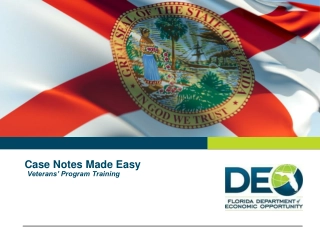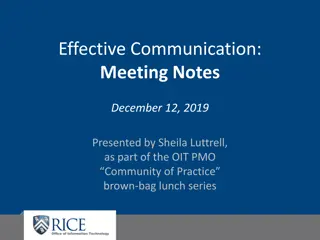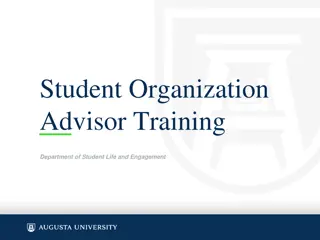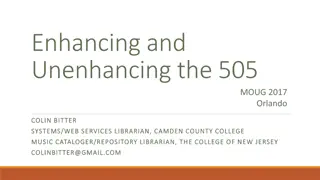
Understanding English Colonization in North America
Explore the history of English colonization in North America, focusing on the establishment of colonies, the impact of capitalism and mercantilism, and the introduction of African slavery. Discover key concepts such as colony, capitalism, mercantilism, religious freedom, and natural rights. Learn about the competition among European nations, the Age of Discovery, and the Columbian Exchange that shaped the world as we know it today.
Download Presentation

Please find below an Image/Link to download the presentation.
The content on the website is provided AS IS for your information and personal use only. It may not be sold, licensed, or shared on other websites without obtaining consent from the author. If you encounter any issues during the download, it is possible that the publisher has removed the file from their server.
You are allowed to download the files provided on this website for personal or commercial use, subject to the condition that they are used lawfully. All files are the property of their respective owners.
The content on the website is provided AS IS for your information and personal use only. It may not be sold, licensed, or shared on other websites without obtaining consent from the author.
E N D
Presentation Transcript
EQ#1 Text pages 6-35
ESSENTIAL QUESTION #1 Topic/Objective Colonization Essential Question Who were the English colonists?
VOCAB: COLONY People who settle in a new place, but are ruled by a government in their native land
VOCAB: CAPITALISM A system in which people put money (capital) into a business in order to make a profit
VOCAB: MERCANTILISM A system where colonies were meant to provide resources for the mother country
VOCAB: RELIGIOUS FREEDOM The right of all individuals to follow their own religious beliefs
VOCAB: NATURAL RIGHTS Rights given to every human being at birth
COLONIZING NORTH AMERICA Competition by European nations for quicker trade routes led to the Age of Discovery After Columbus discovery of North America, European nations set out to colonize the continent Spain, France, and England would all establish North American colonies from 1500-1700 Led to the Columbian Exchange - a global transfer of plant and animal life that shaped the world today (p. 10) Colonization brought African slavery to North America Slave labor was used to run large plantations, which produced cash crops (Sugar, tobacco, indigo)
TRADE AND COMMERCE American colonies were set up for capitalism and mercantilism- basically money making ventures for the mother country Class-systems were very strict in Europe- new world presented new opportunity Merchants would pool funds in order to try and establish money making ventures in the new world The earliest successful English colony Jamestown was a capitalist investment (People looking to get rich!!) (pg. 17) After initial struggles- the colony found success growing tobacco in modern day Virginia Settlers were given a charter (permission) to establish colonies in the name of the mother country to promote mercantilism
COLONIAL REGIONS The New England Colonies (p.21) Settled by Pilgrims seeking religious freedom Poor farming land- small subsistence farming to feed families Relied on mercantilist trade of resources like lumber and fish The Middle Colonies (p. 22) Settled by mix of people seeking religious freedom and capitalist ventures Good farm land was available- creating large farms and the production of cash crops Would also use natural resources to develop trade and mercantilist systems The Southern Colonies (p. 23) Settled by mix of people seeking religious freedom and capitalist ventures Longest growing season, economy driven by plantation farming of cash crops - requiring large labor force (African slavery)
BELIEFS OF THE COLONISTS Colonization took place during the Enlightenment- a period in Europe of great scientific discovery and thought Gave colonists new views of the world and existence Led to a belief in natural rights - the idea that all humans are seen equal at birth by God (Opposite of Divine Right) (pg. 28) Also- the distance from the mother country meant colonists practiced self-government - electing officials and making ruling decisions themselves (ex. Mayflower Compact) (pg. 30) A religious movement called the Great Awakening encouraged independence in colonists and a belief in questioning authority (pg. 31) Many colonists also belied in ideas of the English Bill of Rights - which protected freedom of the press - the right for the public to report and write about the government/rulers honestly (pg. 33)






















